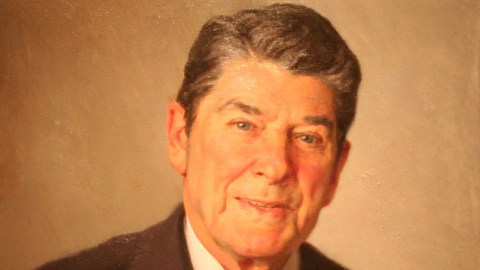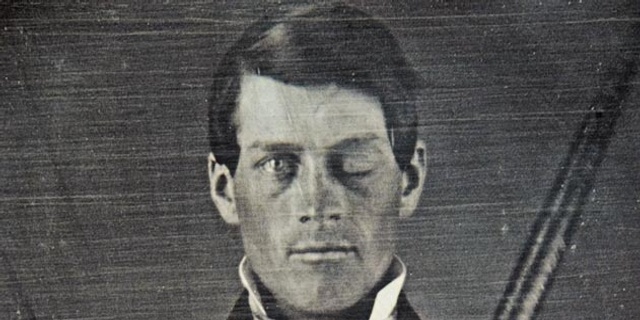The Reagan Centennial (Or Happiness–Part 3: A Happy President)

Ronald Reagan would have been 100 on February 6. If they had a cure for Alzheimer’s, you know he would have made it. Health-obsessed Americans today (disproportionally sophisticated liberals) should at least look to Reagan for longevity tips. He was one of our more vigorous presidents, despite the fact that he was easily the oldest.
All presidents have their strengths and weaknesses. But when remembering a great man, it’s only right to focus on what’s good and great. And I’m beginning to think about how to remember Reagan. These observations are preliminary, unresearched, and meant to challenge the BIG THINK reader a bit.
Reagan was a happy, confident president, confident in himself and confident in the goodness of his country and its devotion liberty. In that respect, he was a lot like FDR, whom he often said he admired. Even JFK, by comparison, had emotional “issues,” which were reflected in his disordered personal life and even in his indecisiveness as president.
Both Reagan and FDR were first elected by “negative landslides.” The country had lost confidence in and people thought they were feeling the incompetence of the incumbents who were defeated for reelection–Hoover and Carter. Carter even gave his famous “malaise” speech–where he said the country as a whole was suffering from “a crisis in confidence.” Carter, some observed, projected his personal “issues” on all Americans. Both FDR and Reagan restored confidence in the country and confidence in the president.
Reagan and FDR were both reelected by “positive” or affirming landslides. Everyone thinks they know that the 1936 Roosevelt victory was a popular vindication of the reforms or “regime change” called the New Deal. For Reagan, the 2004 mandate was surely even more personal, insofar as it didn’t extend to Congress.
Reagan’s victory, as he himself said, was not about rolling back the New Deal. But it was a repudiation of the progressive view that the true narrative of American greatness is toward bigger and better government. That repudiation, in my opinion, stuck, and Obama hasn’t overcome it. His progressivism was just repudiated in the midterm election, and the likelihood of him rolling to a landslide victory in 2012 is very slim. Our current president does share with Reagan some moments of soaring rhetorical eloquence and personal class.
Reagan showed that a president could be “active” and “positive” on behalf of personal liberty. His signature thought domestically was all about the liberation of the energies of the American individual through lower taxes.
Reagan was also active and positive in opposition to the big, monstrous government that was “the evil empire” that was the Soviet Union. No one can deny that he reinvigorated the American military and aggressively opposed communism throughout the world–in Afghanistan, against the Sandinistas, etc. etc.–without actually getting American troops in a significant war. No one can doubt that his confidence and his prudence were key reasons for the deterioration to the point of destruction of Soviet confidence under his watch. We now know it was really, really prudent (contrary to what the experts were saying at the time) for our president to be so judgmental about evil that animated our enemy.
Although he meant what he said about God, it doesn’t appear that Reagan was all that religious a man. But he was very clearly and sincerely pro-life. He wrote privately that he thought that scientific advances–particularly the ultrasound–had removed any doubt that an unborn baby is really a baby–or not merely a foetus. That confidence, we can see, has also transformed the country, although very gradually and somewhat ambiguously. All the studies these days show that young people are more pro-life than their parents.
I could say more, but this is more than enough for a first stab.





